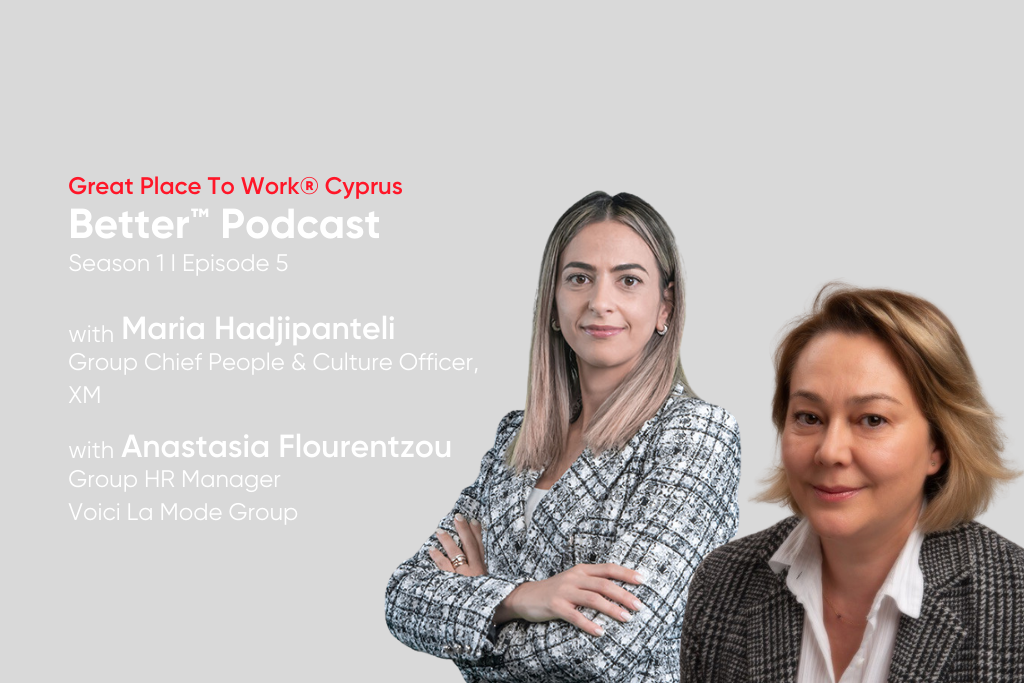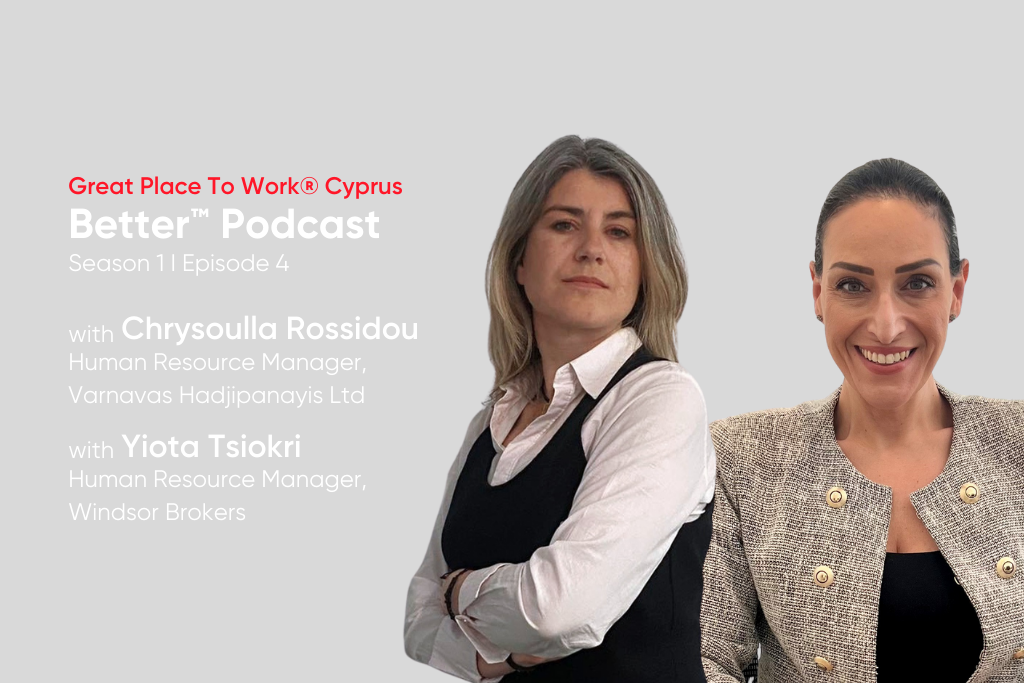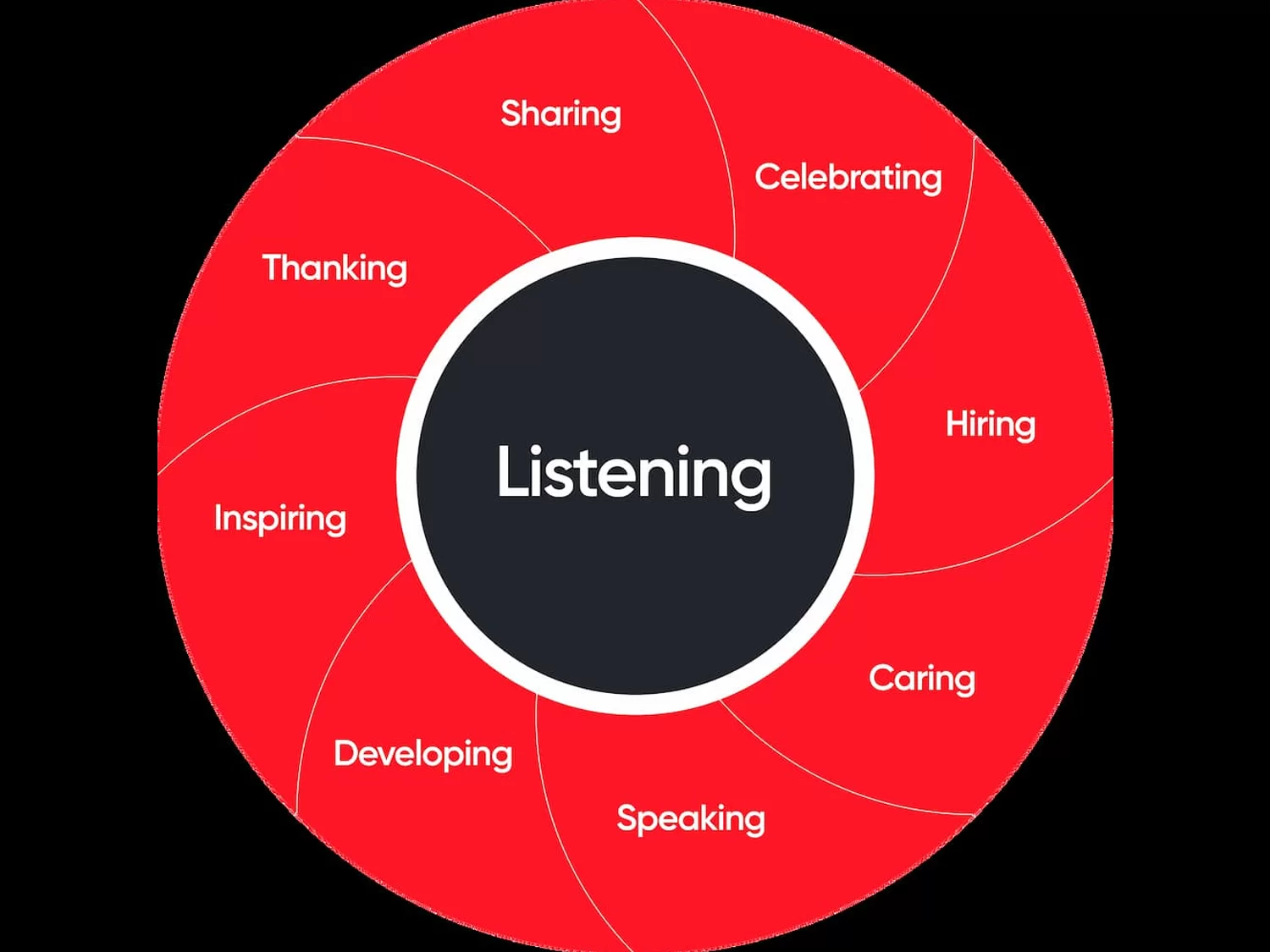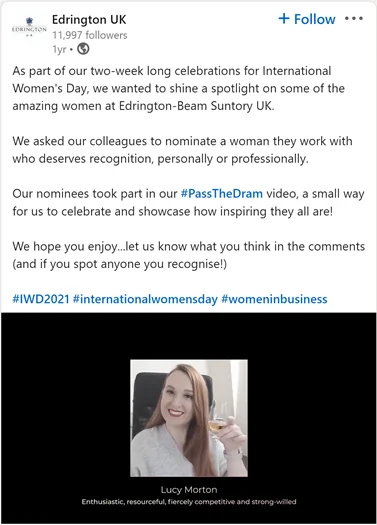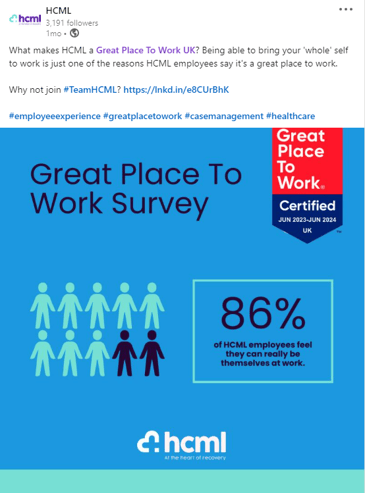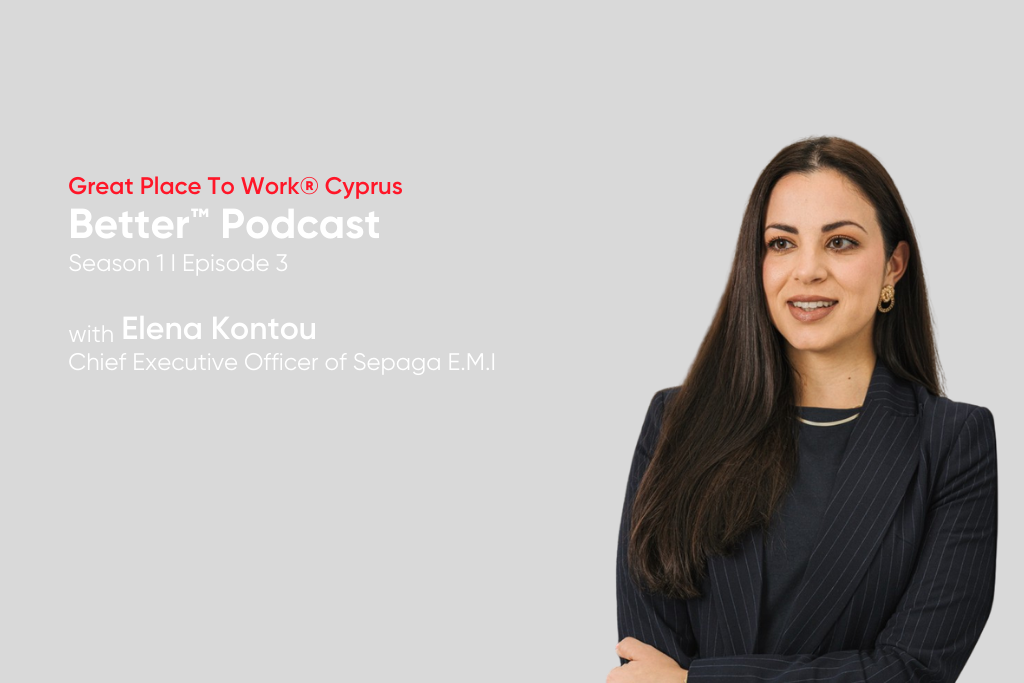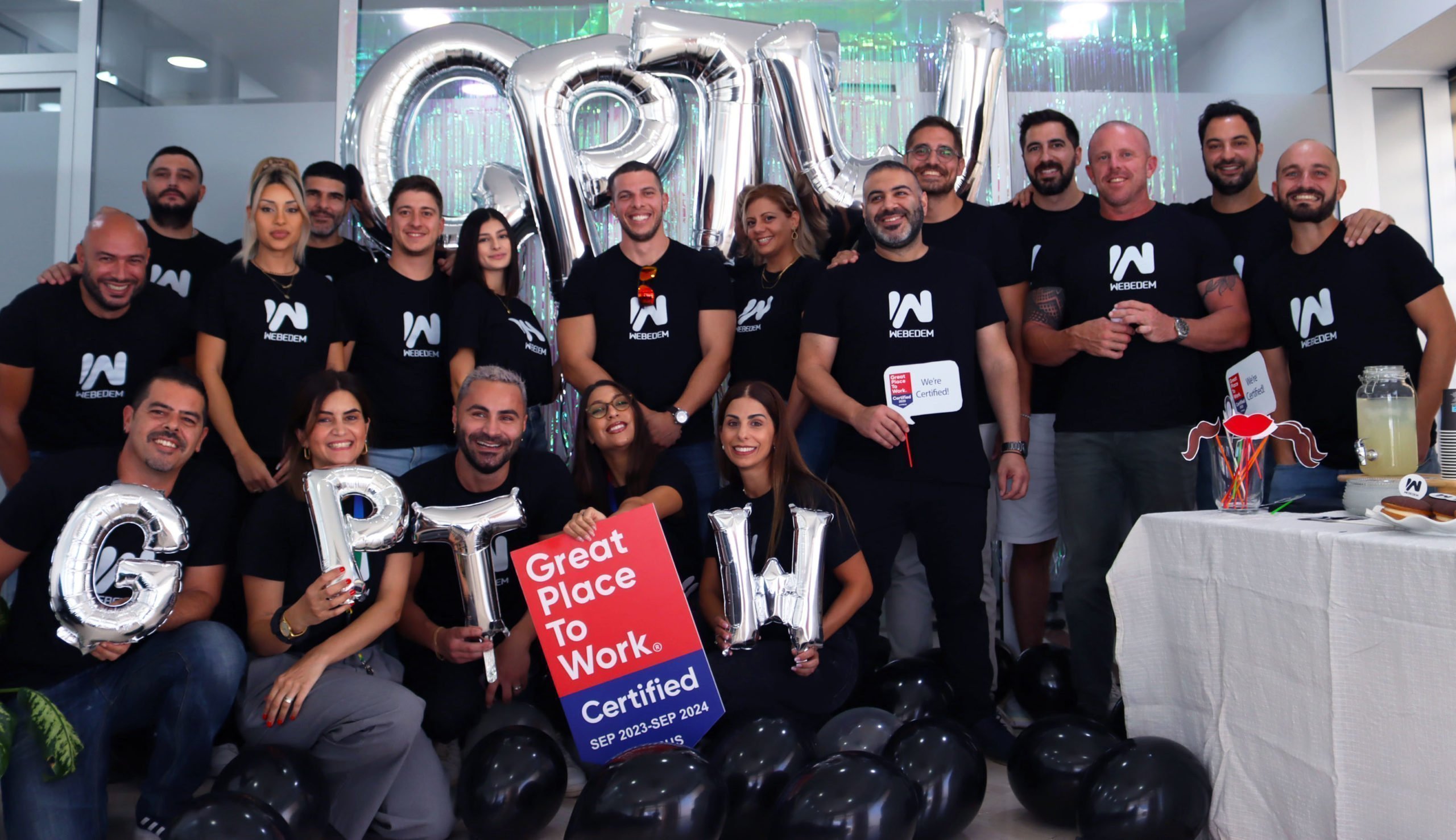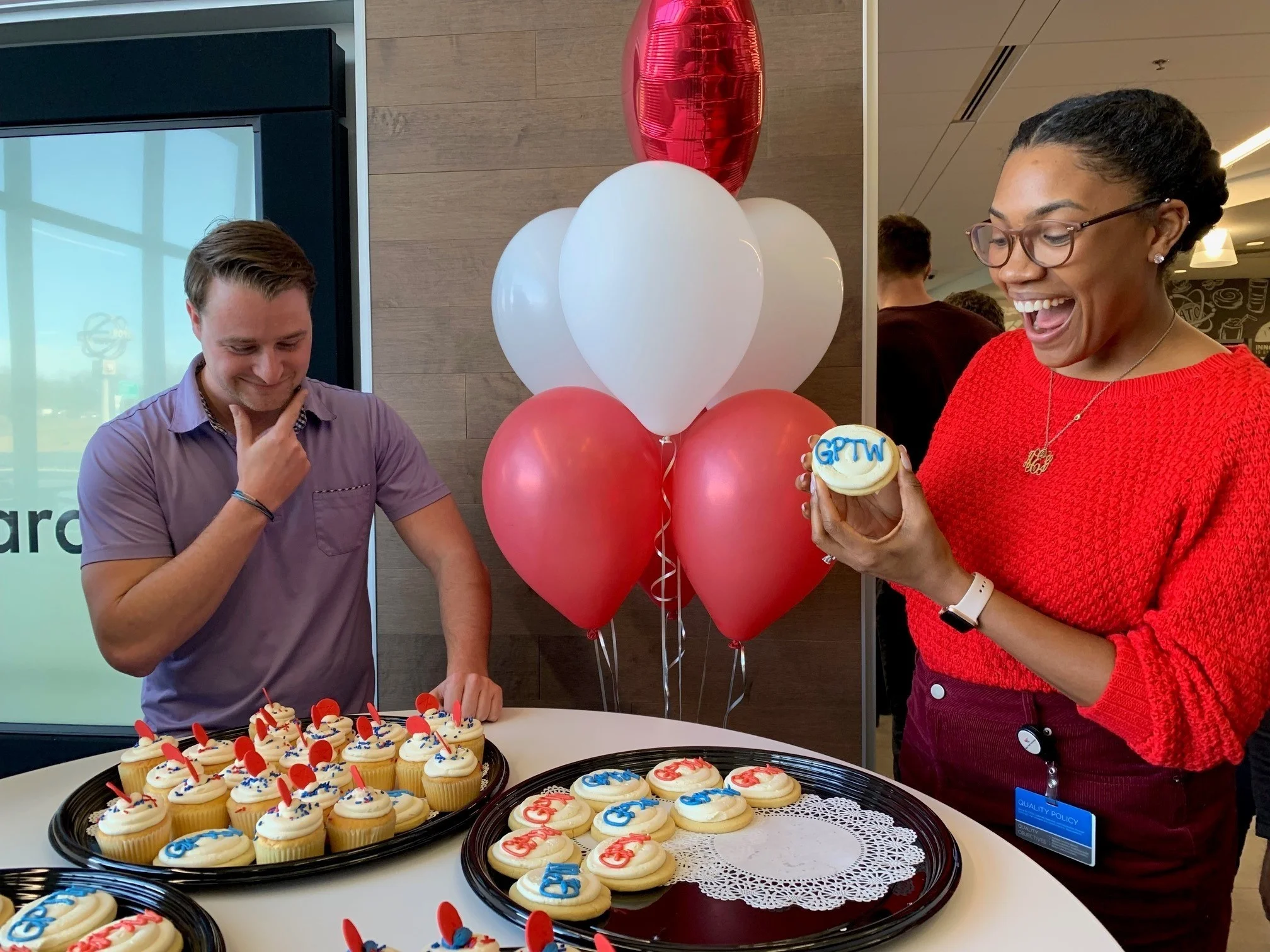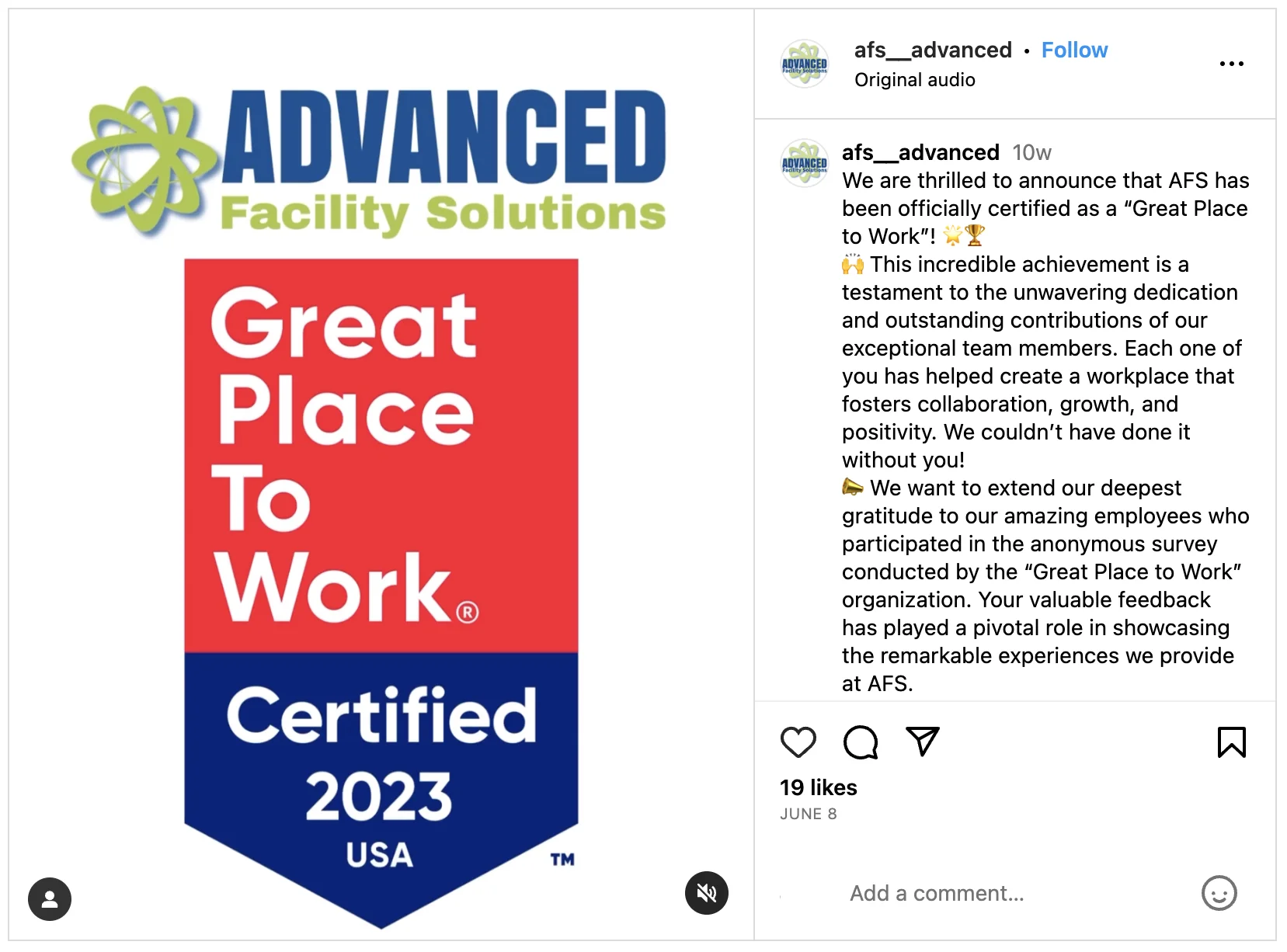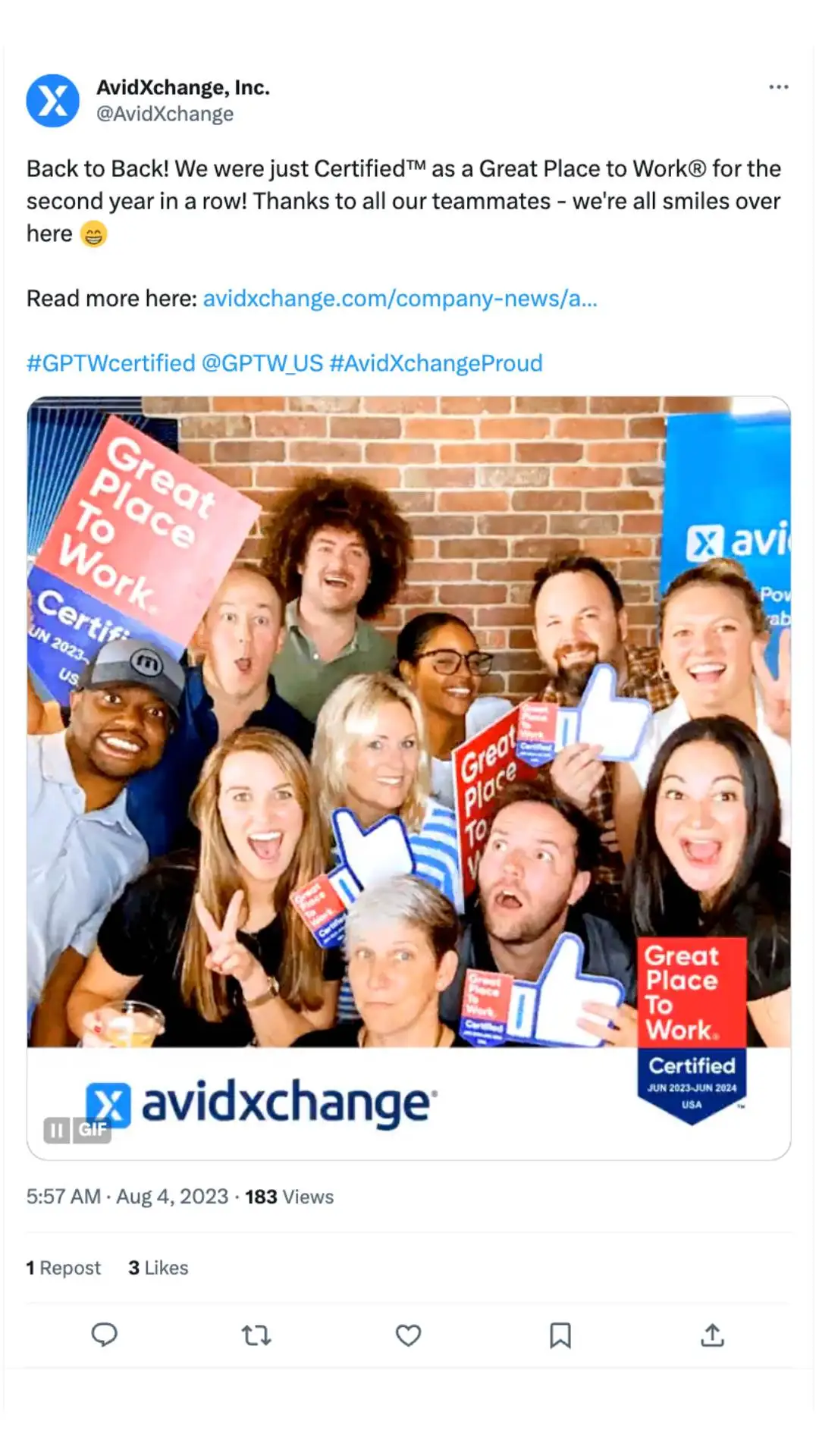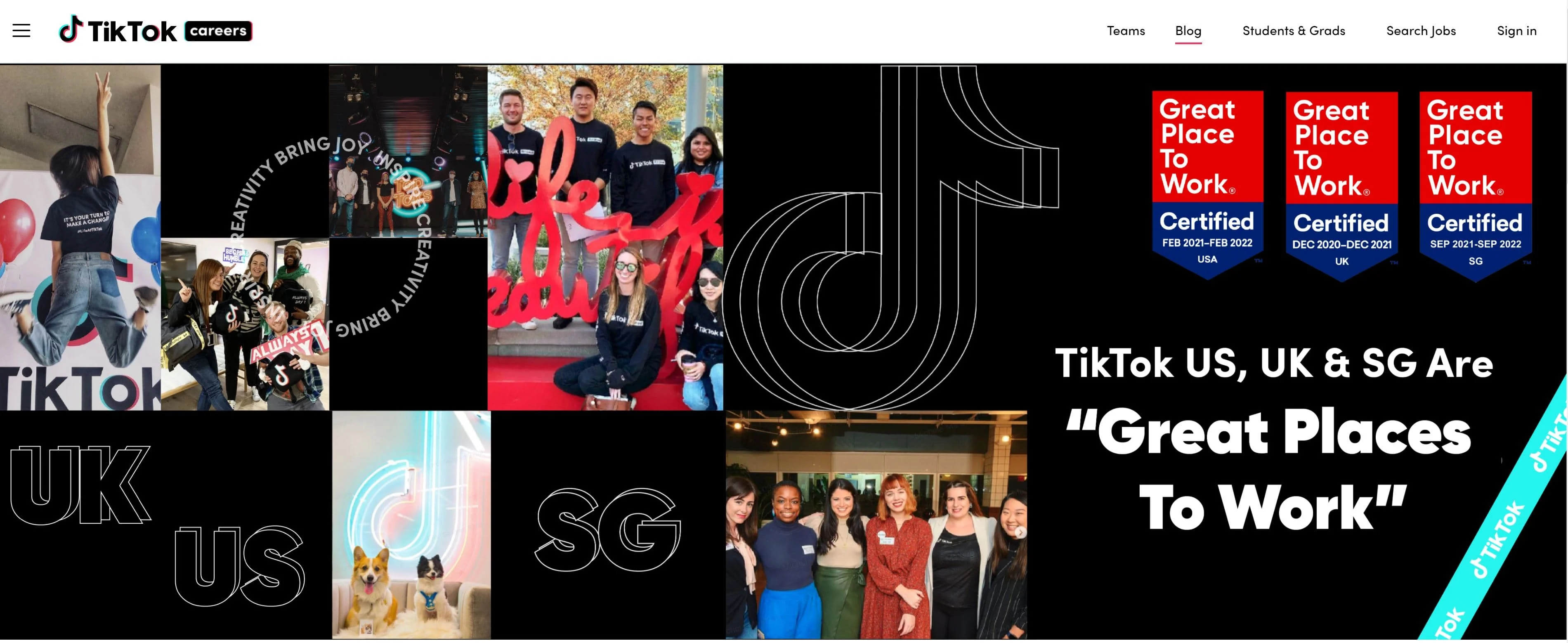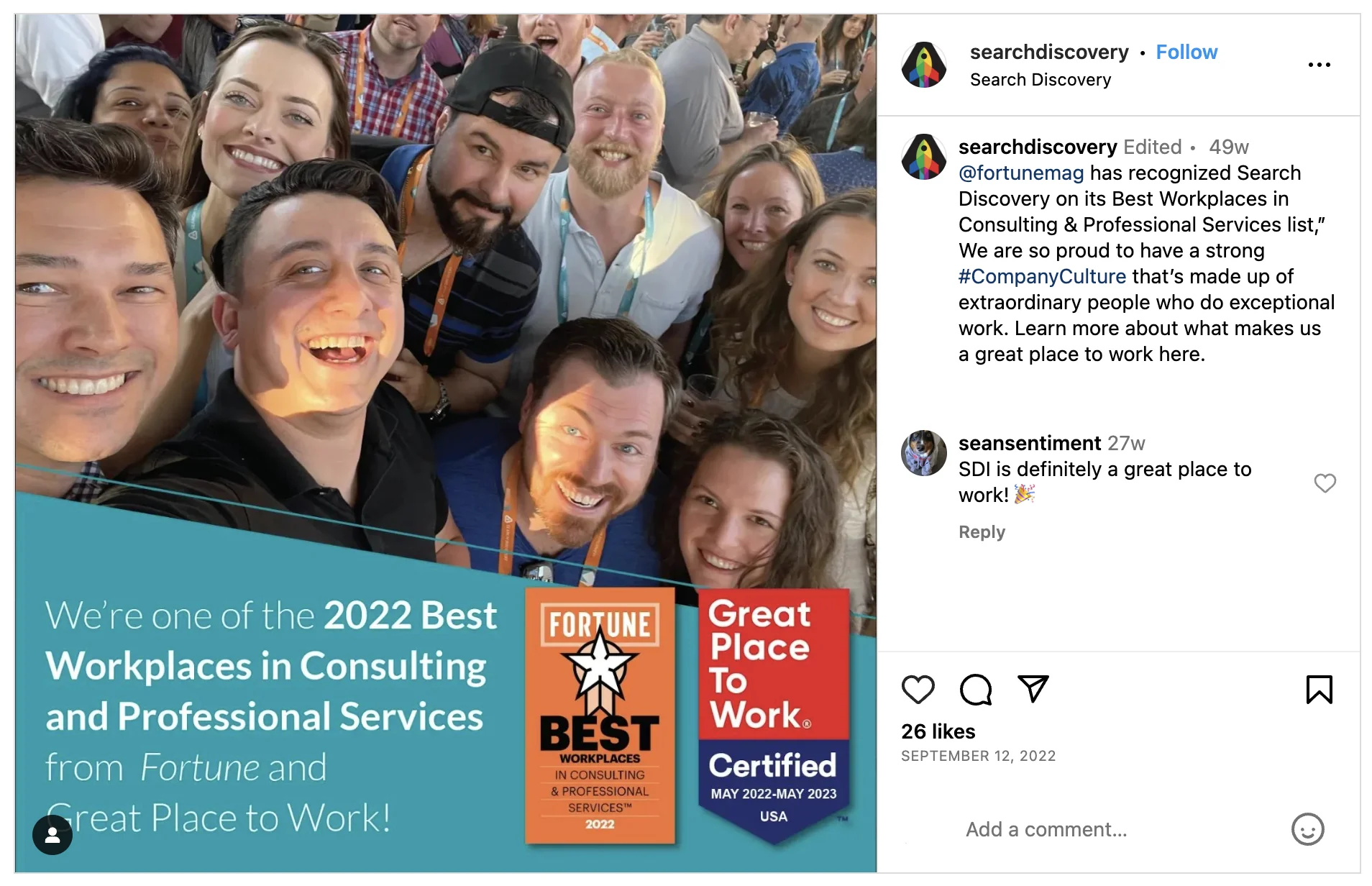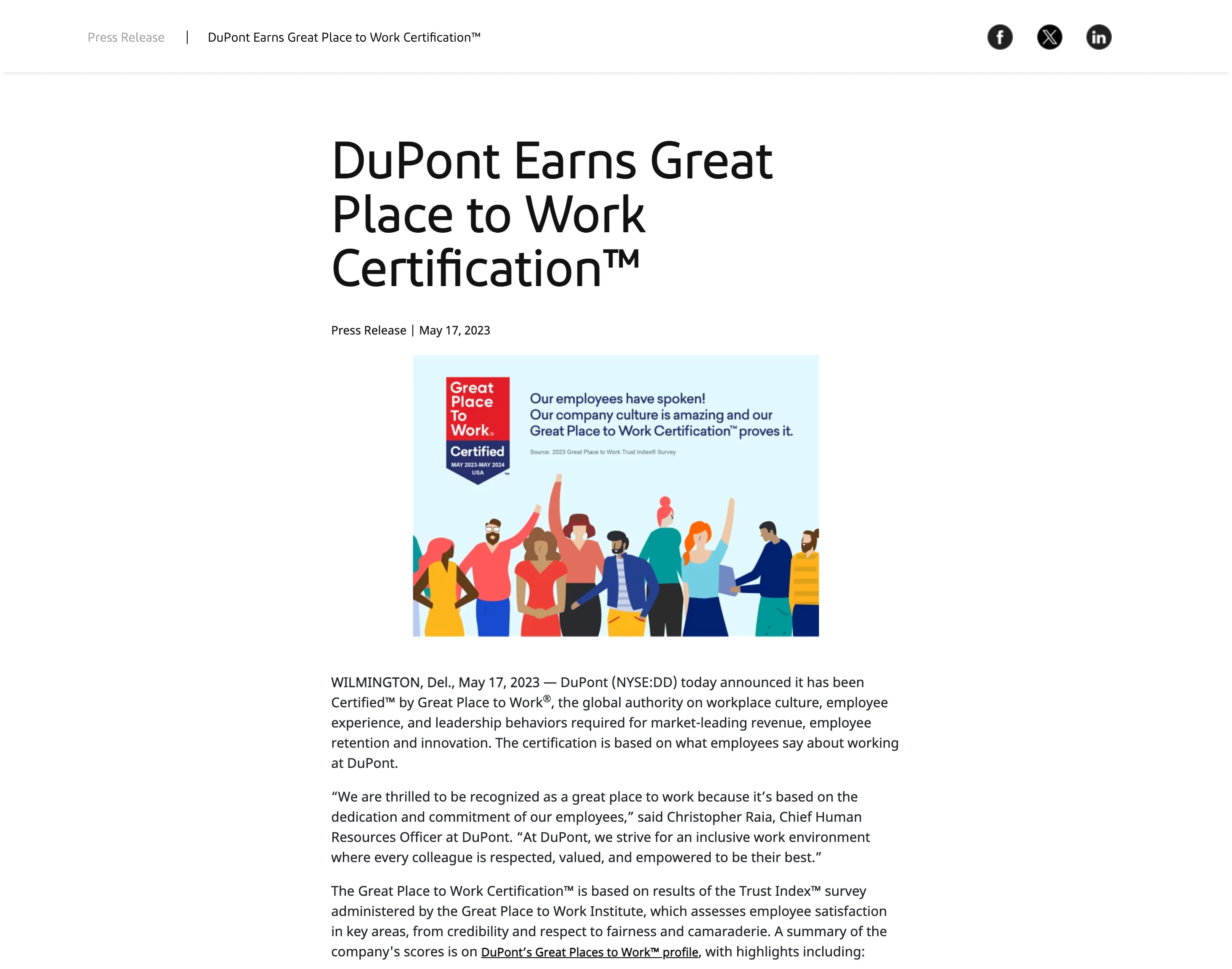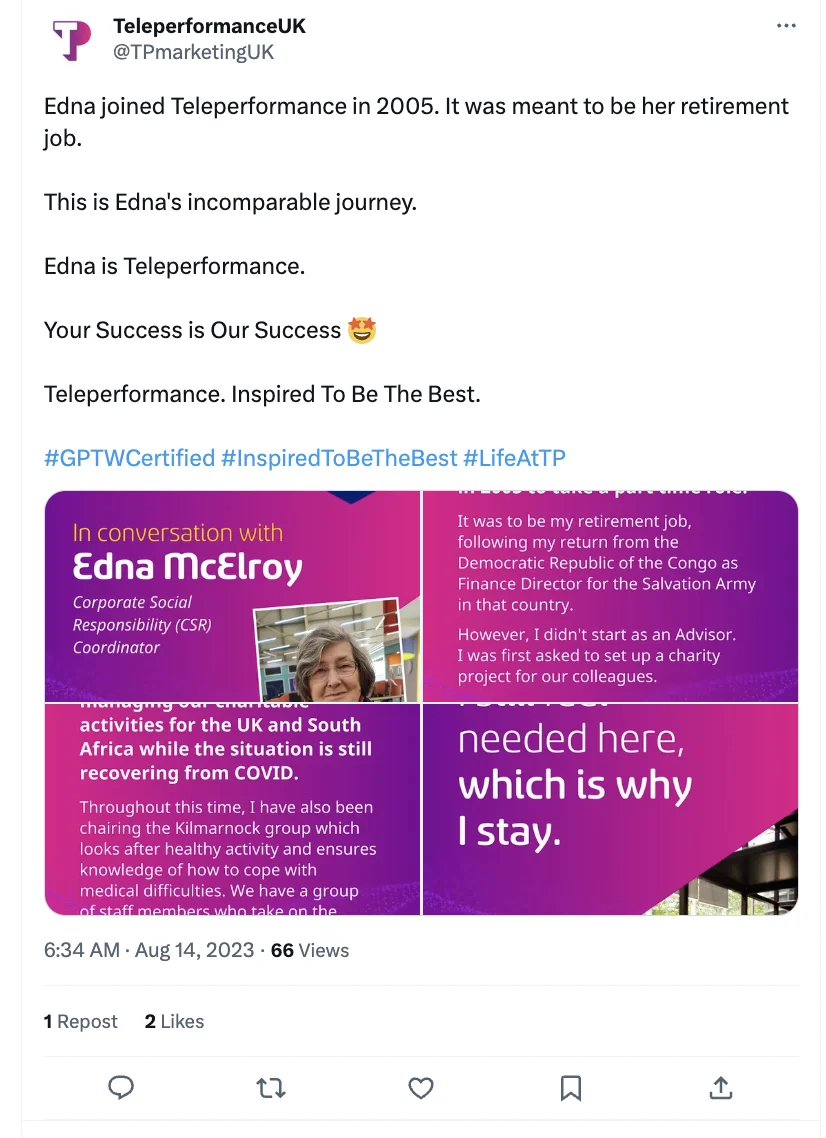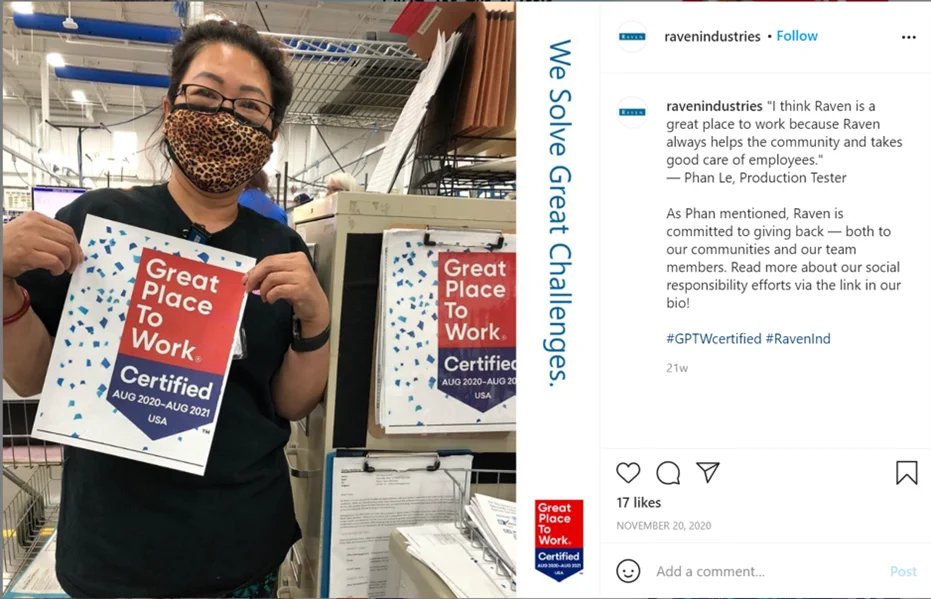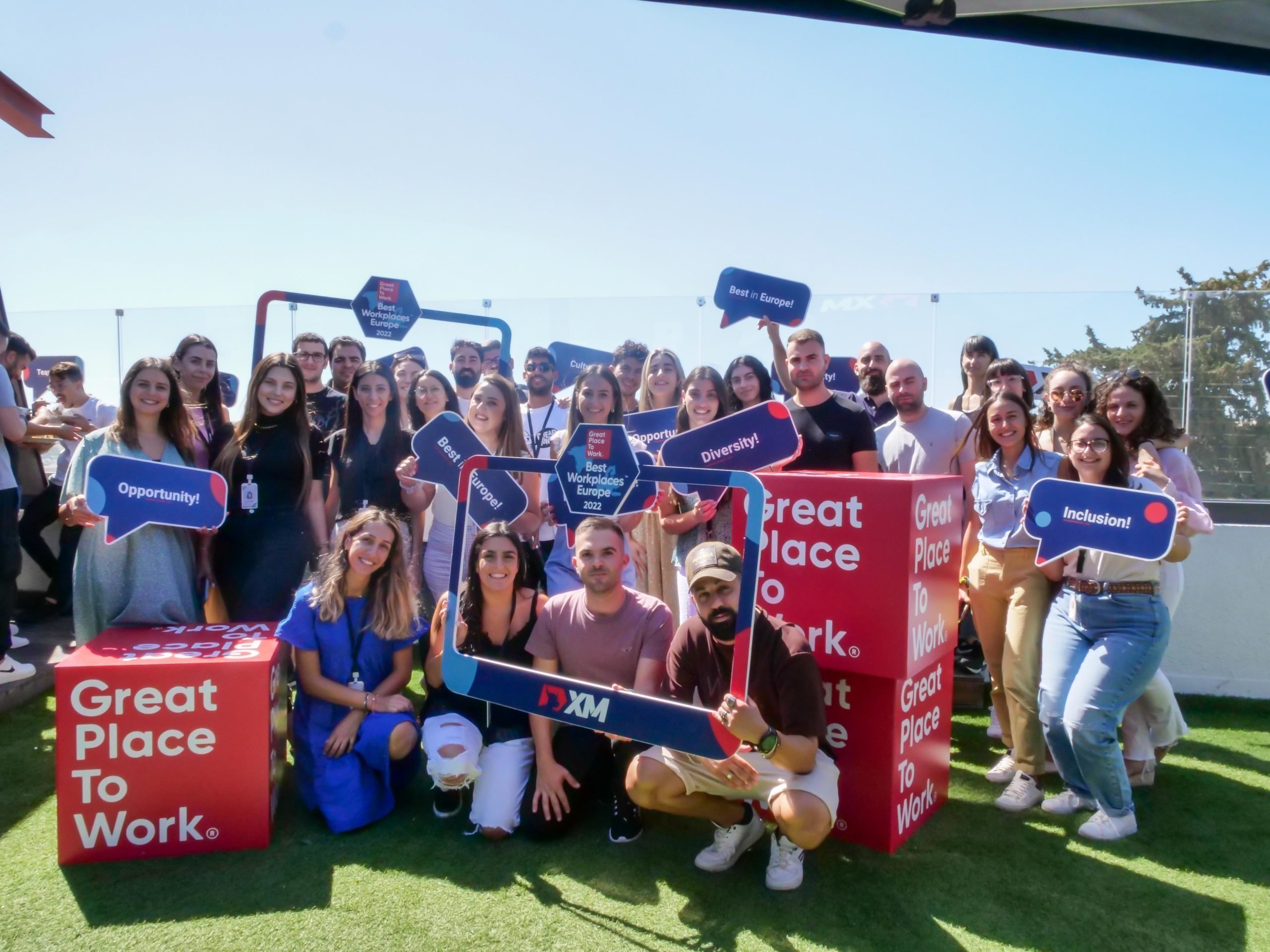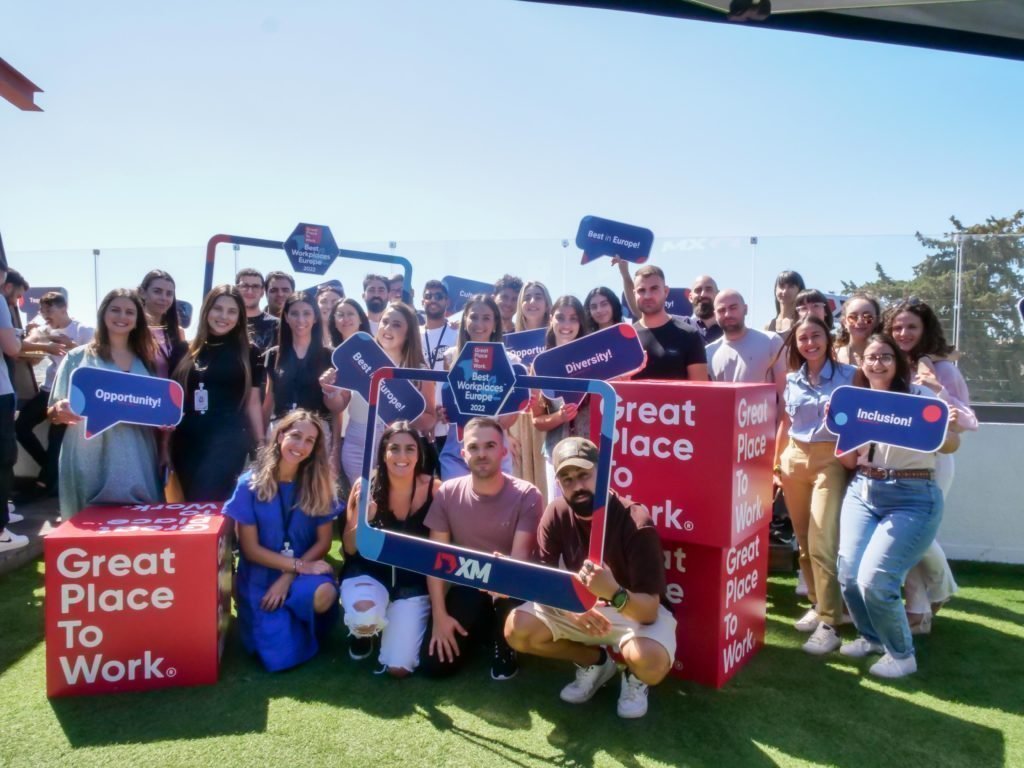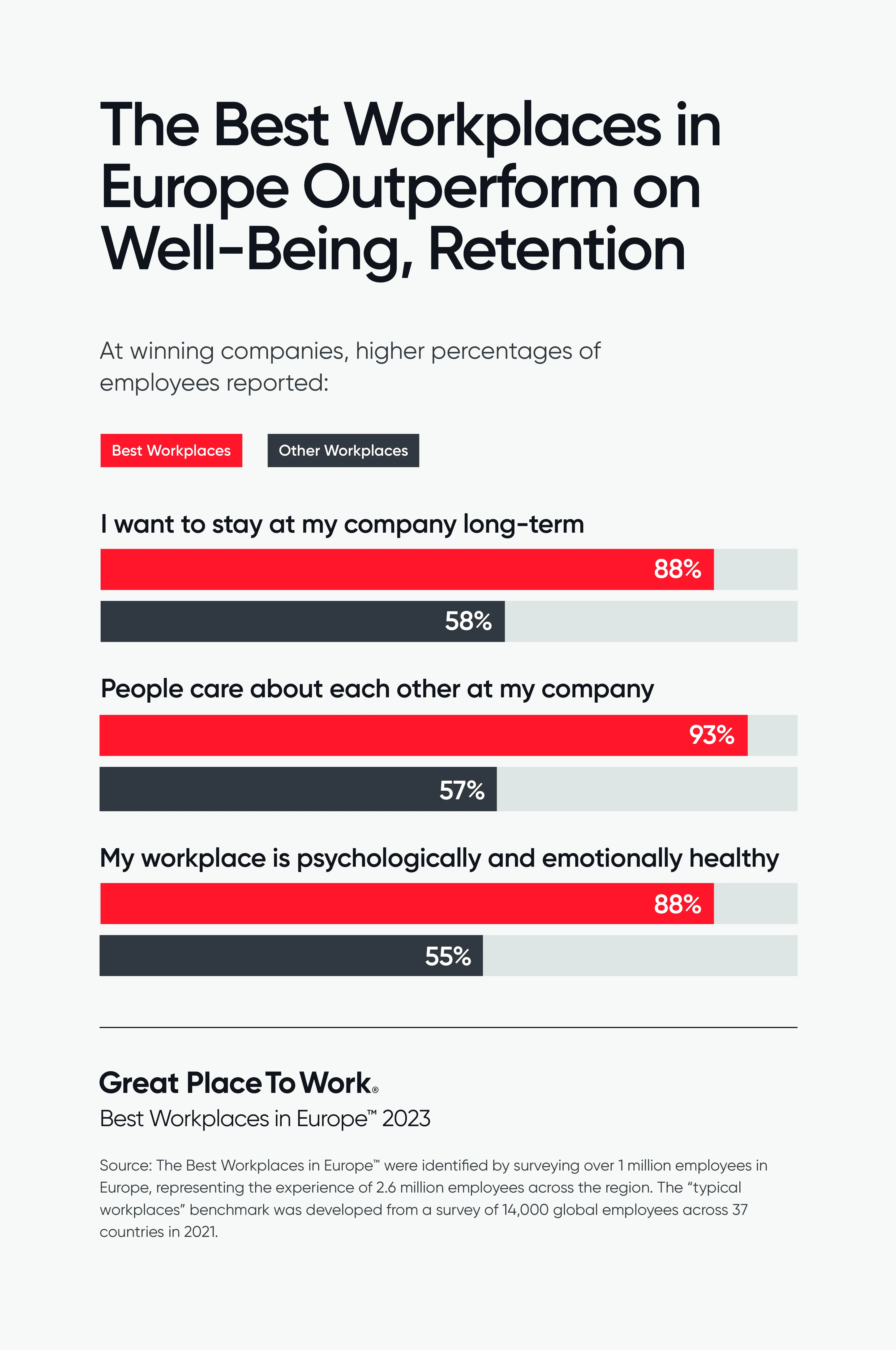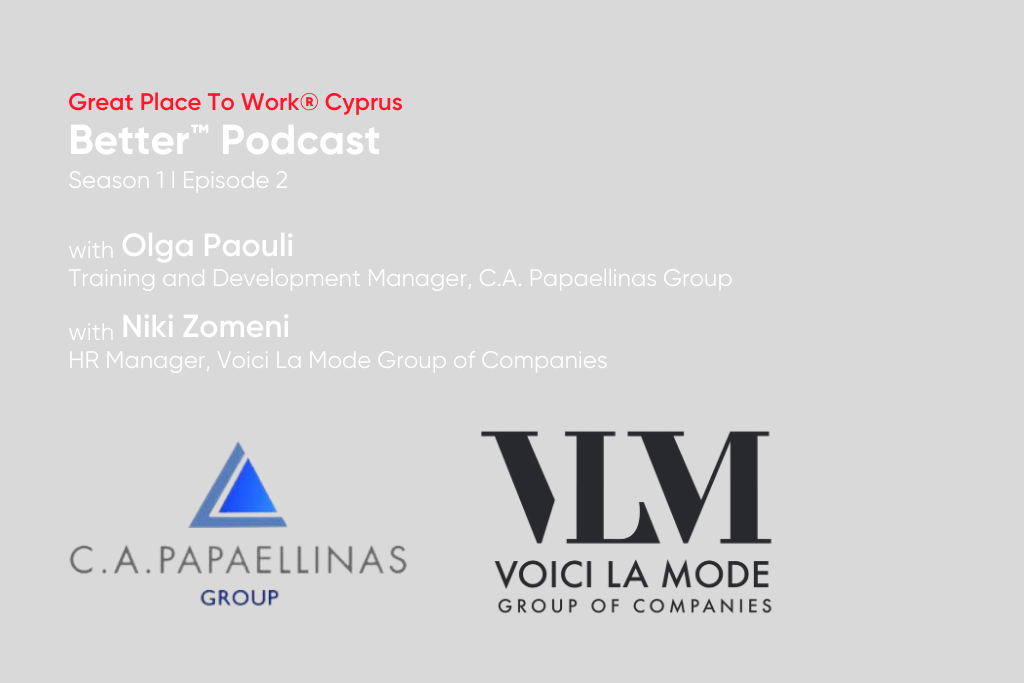
Are you feeling the heat in today’s competitive job market? You’re not alone. Attracting and retaining top talent is becoming a tougher puzzle to solve. But what if I told you there’s a secret ingredient that could make your company stand out to job seekers?
Enter Great Place To Work® Certification™. A recent study carried out in the U.S revealed a game-changing insight: Job seekers are overwhelmingly more likely to choose a company that’s been certified as a great workplace by its own employees.
In the 2023 study by Great Place To Work® U.S, the sentiments of over 4,400 employees from typical U.S. workplaces were captured. This was part of a larger three-year market survey. Respondents were asked a straightforward question: “Would knowing a workplace has been certified as a great place to work by its own employees make you more likely to want to work there?”
The results were clear: People were 15 times more likely to choose a company knowing it was certified by employees as a great workplace.
That’s three out of four U.S. job seekers who said they’re more likely to choose a company that is Great Place To Work Certified™.
This is good news for Certified companies looking to recruit talent away from competitors, as employees are expressing less interest in leaving their jobs than they were in 2022. In fact, there’s been a 25% year-over-year decrease in employees who are undecided about whether to look for a new job, and a 26% increase in workers who say they plan to stay where they are.
In other words, the competition for top talent has heated up significantly, and employers need to stand out in the job market. Great Place To Work Certification tells job seekers that a company has a proven track record of providing a positive work environment, validated by current employees and unbiased, third-party assessments.
The role of trust in great workplaces
Before we explore the impact of trust on workplace dynamics, let’s talk about the importance of trust in earning Great Place To Work Certification. Our model is built on the belief that trust is the foundation of a great workplace.
It’s what we look for when we assess companies for Certification. We use our Trust Index™ Survey to measure how much employees trust their leaders, feel respected, and enjoy their workplace culture.
Our research has shown that trust doesn’t just make a nice place to work; it drives real business success. When employees trust their company, they’re more engaged, productive, and likely to stick around.
That’s why companies that earn our Certification are places where trust is strong, and as a result, they outperform their competitors.
But don’t just take our word for it; the numbers speak for themselves. In our same national employee survey conducted in 2023, we reached out to over 4,400 employees from a variety of industries and backgrounds. They shared their experiences on everything from trust and pride to innovation and fairness at work.
When we compared their responses to those from Great Place To Work Certified companies, the disparities were obvious. Certified workplaces consistently outshine the national averages, proving that trust isn’t just a feel-good factor—it redefines success for companies.
How companies Certified by Great Place To Work eclipse the typical workplace
Our research shows that Certified (aka high-trust) companies can boast about having better bosses, fairer paths to promotions, and higher employee engagement, with more employees reporting that they look forward to coming to work.
They are also far more successful at retaining, engaging, and fostering adaptability among employees than at the average workplace.
Certified great workplaces pay and promote their people fairly
Employees at great workplaces say they often or always felt practices at their workplaces were fair.
Employer brands that stand out from the crowd
Certified great workplaces retain and attract more talent. They live their employer brands from the inside out and inspire better employee engagement.
Certified great workplaces are full of supportive, passionate coworkers.
Great workplaces offer more opportunities
Employees want more than just a paycheck. They want to be given the chance to grow and develop, while not having to neglect their personal life for the sake of work.
Great workplaces provide a sense of purpose and pride
Our research into top employee retention strategies has shown that more than anything else, purpose and pride are the two biggest factors that determine whether an employee will stay with an organization. Employees are:
- 2.7x more likely to stay when they feel a sense of purpose
- 2.2x times more likely to stay when they feel a sense of pride
When leaders inspire employees to feel proud of what they do and to find meaning behind it, they have a happier and more motivated workforce. At Certified great workplaces, employees are:
- 53% more likely to experience a sense of purpose at work
- 25% more likely to feel a sense of pride at what their team has accomplished
“I often find myself sharing the DHL way with others who are complaining about their workplace. Especially in areas of engagement, corporate social responsibility, and constantly looking forward/innovating. Our CEOs … deliver tough messages when we need to be aware. Not in a doom and gloom way, but in a positive, pull-us-all-together way. As a company, we have a consistent strategy, and we talk about it often and relate it to what’s actually happening in the business. We are really good at constantly improving. Just writing this makes me really proud to be a long-term DHL’er.” –Employee at DHL Express
Hearing it straight from the source: Culture through employee voices
For job seekers and HR managers alike, choosing a Great Place To Work Certification is a smart decision that leads to improved job satisfaction, stronger employee engagement, and a lasting positive work environment. By prioritizing workplace certification, job seekers can increase their chances of finding a great boss, while HR managers can leverage this certification to attract and retain the best talent in their industry.
Read case studies of how other companies became Certified.
Learn how to get your company Certified today and join the community of exceptional workplaces.

As the Content Program Manager at Great Place To Work, Claire helps decode the psychology behind high-trust workplaces using Great Place To Work’s extensive data repository on employee experience. Claire has co-authored noted reports such as “Women in the Workplace” and “The Power of Purpose at Work,” and contributed to Fortune with her profiles of the Best Workplaces™. Her latest report on employee retention strategies draws on the experience of 1.3 million employees to give leaders strategic guidance on retaining their top people.


